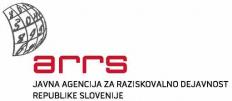Protests, art practices and culture of memory in the post-Yugoslav context
Principal Investigator at ZRC SAZU
Ana Hofman, PhD-
Original Title
Protesti, umetniške prakse in kultura spomina v post-jugoslovanskem kontekstu
-
Acronym
POLPOYUG
Project Team
-
ARIS Project ID
J6-3144
-
Duration
1 October 2021–30 September 2024 -
Project Leader
-
Financial Source

Partners
FDV - doc. dr. Mirt Komel, ALU - doc. dr. Petja Grafnauer
The project researches the role of artistic practices, the culture of memory and protests in the last period of post-socialist transition in the post-Yugoslav context. If the first decade of transition was marked by ethnic wars and demise of socialist welfare state, then the last decade was marked by the rise of authoritarian neoliberalism and a strengthening of social inequalities. What was once held high as neoliberal utopia in the pursuit of individual happiness through entrepreneurialism has been brought to an end, and with it, one of the flagships of the post-socialist transition also fell: the belief that the transition is leading to an "open", democratic and more just society. This project starts from a key premise of critical theory, which argues that transition is (has been) neither a homogeneous nor a neutral process, but a process marked by a series of contradictions and even regressions, which at the most extreme point manifest themselves in wars and rehabilitation of local fascism. The research focus is based on the case studies from Slovenia, but also includes an analysis of some important cases and events from the selected post-Yugoslav countries. The project addresses three main sets of questions:
(1) What are the key commonalities and differences of transition in the post-Yugoslav context? How have alternative politics and art responded to the collateral damage / negative effects of the transition?
(2) How did alternative practices mobilise emancipatory traces of the past (Yugoslavia, partisan struggle, self-management) that go beyond nostalgia?
(3) Who were the real agents of democratisation, and in which places and with which demands did the protests and uprisings succeed in shaking up the hegemonic constellation, and in which places did they merely support the status quo?
Each phase will consist of a research aspect (reading texts, analysing cases, comparing) and a dissemination/organisation aspect (either hosting/lecture or workshop/conference).
In Phase 1 (the first 10 months), a research team will be constituted and a first work package will be carried out, i.e. an evaluation of the literature of the post-socialist transition. We will focus on the main conceptual innovations in the field of post-socialist transition and (neo)democratic change. We will be particularly interested in analysing the effects of neoliberalism and nationalism in the post-Yugoslav context. The shorter papers and critical summaries will then be reflected upon in the first workshop (FF), where the research team and invited experts will participate. This work package touches on macro analysis, which will be reflected in the following work packages in the fields of politics, art and memory. This phase will provide the research team with a broader framework and theoretical lenses through which to read and intervene in the next work packages. Outputs/implementation: inception meeting; workshop 1; shared 'library' (bibliography); guest lecture. Coordinated by Kirn.
In the second phase (months 10-22) we will focus on case studies in the field of protest: protest, urban initiatives and uprisings. This package looks at various political protests and uprisings that have taken place across the former Yugoslavia over the last decade. The central analysis will be the case of the uprisings in Slovenia in 2012/13 and 2020, but other shorter case studies of urban initiatives will also be presented. We will be interested in what were the reasons and triggers of the insurgency, and at which points the conflict was established. At the same time, this part of the project will assess the democratic potential of new political subjectivities. Implementation/results: we will present the results of the research at Workshop 2 (FDV), and compare some of the cases with external partners (hosting in Belgrade). Coordinated by Kirn, Štiks, Komel, Grafenauer.
In the third phase (months 16-28) we will work on the work package Political art: art groups and actions. We will focus on the analysis of different art collectives and works that have become more political in the last two decades. We will look at the relationship between art and politics (artistic activism, aesthetics of resistance) and answer the question: has and how has politicised art become an agent of democratisation and a vehicle of alternative memory? What have been the main strategies of political art and does the increasing culturalisation and visibility of political art speak of a narrowing of the post-socialist political space? Outcomes: case studies will be discussed in Workshop 3 (ALUO), and a short study visit to Sodertorn University. Coordinated by Grafenauer, Hofman, Komel.
In the fourth phase (months 22-34) we will work on the package Cultural Politics of Emotions: beyond revisionism and nostalgia. From the very beginning of the transition, this area has been permeated by radical contradictions, emotions, the mobilisation of nationalism and nostalgia. We will assess the status and relevance of emotions in the field of political art and memory, and analyse in more detail the extent to which political and artistic initiatives have succeeded in mobilising the legacies of the past (especially the partisan heritage). The research hypothesis assumes that new memory reactivation projects have succeeded in transcending (Yugo)nostalgia and revisionism. The results will be presented in Workshop 4 (ZRC SAZU), and compared with other cases during the hosting in Zagreb. Coordinated by Hofman.
The final phase (months 32-36) is devoted to the editing of the contributions to the international proceedings (the last internal workshop 5 at the Faculty of Arts will be held to discuss the contributions received for the international proceedings, and to close the project), and to the holding of an international conference, which will touch on all the work packages. Finally, the final and financial report will have to be written. Coordinated by Kirn and Hofman.